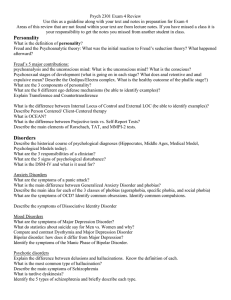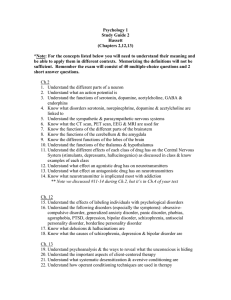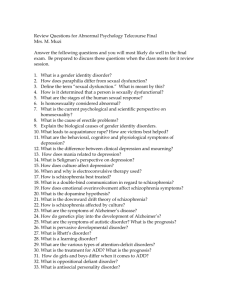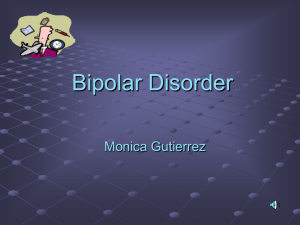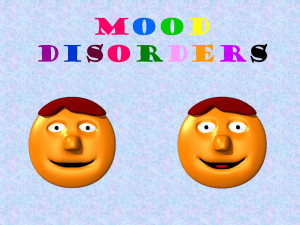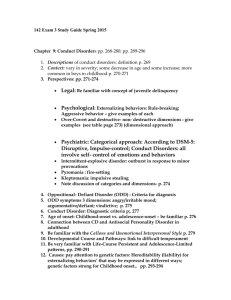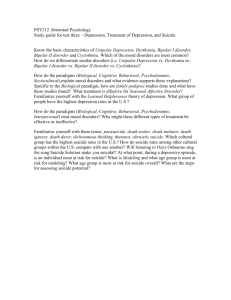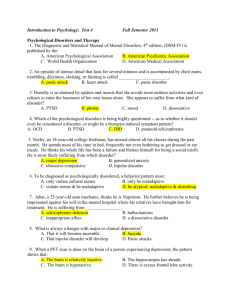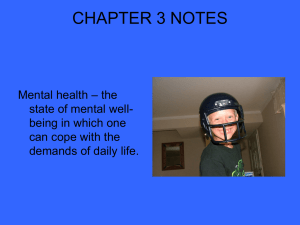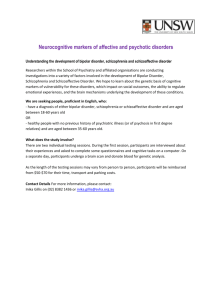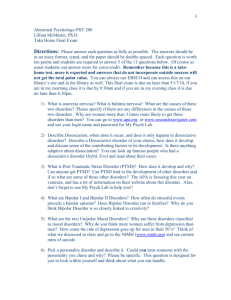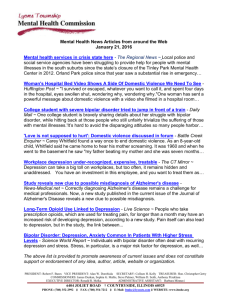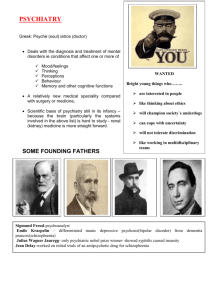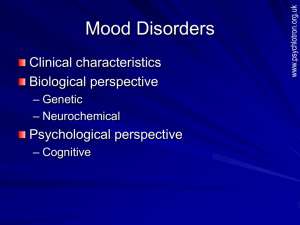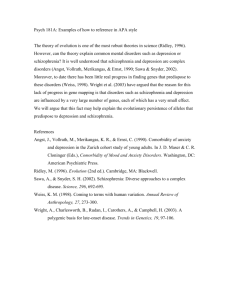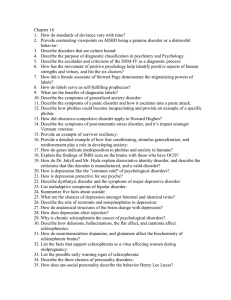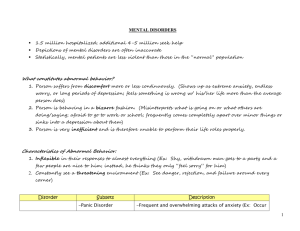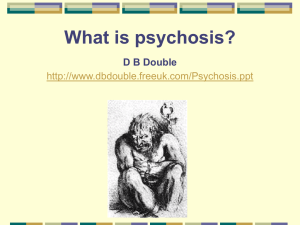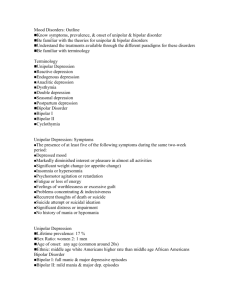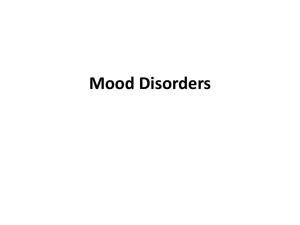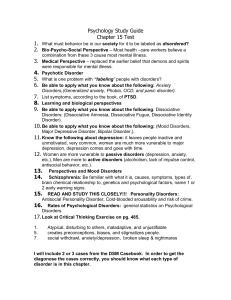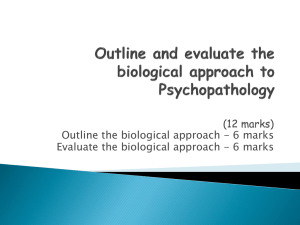You are responsible for all lectures, as well as:
advertisement
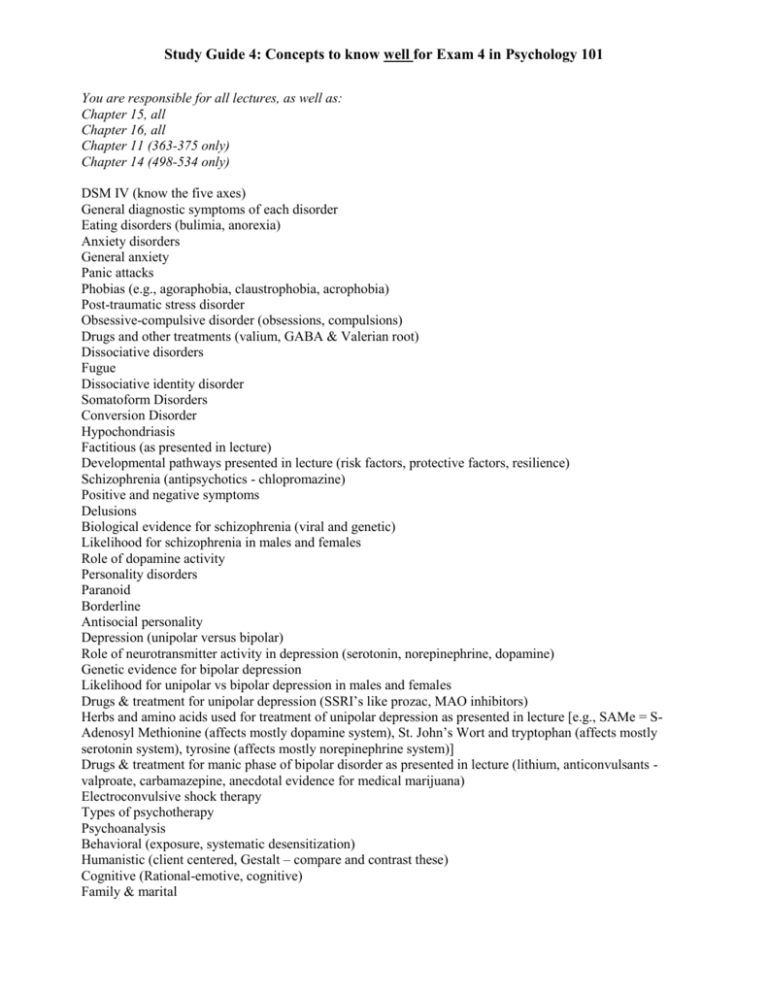
Study Guide 4: Concepts to know well for Exam 4 in Psychology 101 You are responsible for all lectures, as well as: Chapter 15, all Chapter 16, all Chapter 11 (363-375 only) Chapter 14 (498-534 only) DSM IV (know the five axes) General diagnostic symptoms of each disorder Eating disorders (bulimia, anorexia) Anxiety disorders General anxiety Panic attacks Phobias (e.g., agoraphobia, claustrophobia, acrophobia) Post-traumatic stress disorder Obsessive-compulsive disorder (obsessions, compulsions) Drugs and other treatments (valium, GABA & Valerian root) Dissociative disorders Fugue Dissociative identity disorder Somatoform Disorders Conversion Disorder Hypochondriasis Factitious (as presented in lecture) Developmental pathways presented in lecture (risk factors, protective factors, resilience) Schizophrenia (antipsychotics - chlopromazine) Positive and negative symptoms Delusions Biological evidence for schizophrenia (viral and genetic) Likelihood for schizophrenia in males and females Role of dopamine activity Personality disorders Paranoid Borderline Antisocial personality Depression (unipolar versus bipolar) Role of neurotransmitter activity in depression (serotonin, norepinephrine, dopamine) Genetic evidence for bipolar depression Likelihood for unipolar vs bipolar depression in males and females Drugs & treatment for unipolar depression (SSRI’s like prozac, MAO inhibitors) Herbs and amino acids used for treatment of unipolar depression as presented in lecture [e.g., SAMe = SAdenosyl Methionine (affects mostly dopamine system), St. John’s Wort and tryptophan (affects mostly serotonin system), tyrosine (affects mostly norepinephrine system)] Drugs & treatment for manic phase of bipolar disorder as presented in lecture (lithium, anticonvulsants valproate, carbamazepine, anecdotal evidence for medical marijuana) Electroconvulsive shock therapy Types of psychotherapy Psychoanalysis Behavioral (exposure, systematic desensitization) Humanistic (client centered, Gestalt – compare and contrast these) Cognitive (Rational-emotive, cognitive) Family & marital Study Guide 4: Concepts to know well for Exam 4 in Psychology 101 Therapy related terms Active listening (presented in lecture) Transference Free association Resistance. General adaptation syndrome (alarm, resistance, exhaustion) Type A, Type B Stress and: perceived control, immune functioning, nutrition, aerobic exercise, relaxation Types of social support
